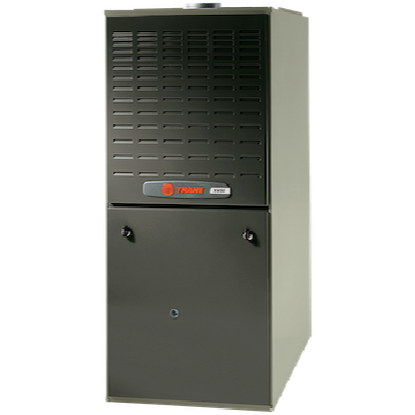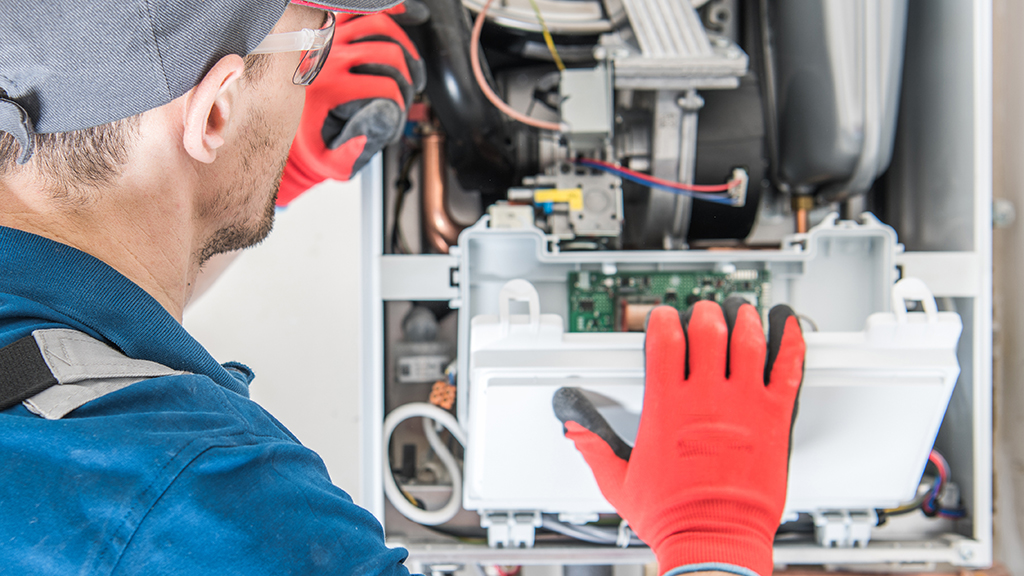Furnaces
How To Choose the Right Furnace

Are you thinking about upgrading your furnace but aren’t sure where to begin? We understand. Furnaces are more efficient than ever, with many features designed to keep you comfortable.
They come in different sizes and shapes, some more powerful than others, and have different prices based on their efficiency ratings.
The thermostat is the brain of your heating, ventilation, and air conditioning (HVAC) system. But it’s the furnace that provides all the muscle, using your ductwork to send warm air through your Pennsylvania home.
A happy home is a warm one! It would only take a few cold days in a row with no indoor heat for all the pipes in your home to freeze.
What matters most is choosing the right furnace that fits your budget and home size. Timothy Off Heating, Air Conditioning and Plumbing has the knowledge and expertise to help you choose. We’re a trusted name in Downingtown, PA, for creating healthy homes. Call today — we can schedule a free consultation to help with your next home improvement project.
If you need heating or furnace services in Chester or Delaware County or surrounding areas, you can count on us. Call Timothy Off today.
Choosing the Right Furnace by Fuel Type
Your first decision is easy: choosing the fuel type. The most common source is natural gas. Your local utility company supplies the fuel delivered to your home through an underground gas line.
The price of natural gas is relatively stable, so you don’t have to worry about cost fluctuations. Plus, you never need to worry about storage.
- If you have access to a natural gas line, we strongly recommend a gas furnace. These have proven their value over the years for providing steady comfort on the coldest days.
- Oil furnaces are a popular alternative in the U.S., particularly in parts of the Northeast that don’t have easy access to natural gas. These types last longer than a gas furnace but don’t operate as efficiently. Oil prices fluctuate more than natural gas prices, making it harder to gauge your monthly expenses. Plus, you’ll need a storage tank for the oil.
- Electric furnaces tend to last longer than gas furnaces and cost less to install. On the other hand, they’re more expensive to operate and take longer to heat your home. Anyone living in a cold climate would enjoy more comfort with a gas or oil furnace.
Choosing the Right Furnace Speed
Furnaces run at different speeds. The operating speed you choose will impact your comfort, budget, and indoor air quality (IAQ).
Single-stage furnaces have just two settings: on or off. Your furnace switches on and continues to run to reach the desired temperature. Once it reaches the temperature, it turns off. Single-stage furnaces are the most affordable models and easiest to install. But they’re the least efficient and tend to create hot and cold spots in larger homes.
Two-stage furnaces run at full speed and half speed. This allows your furnace to heat your home more evenly, producing a more consistent temperature from room to room. In addition to producing better heating, the half-speed setting is much quieter.
Variable-speed furnaces are the gold standard of the heating world. These models adjust their speeds to provide precise comfort. They run longer at slower speeds, improving efficiencies while lowering energy bills. Because they don’t frequently cycle on and off, these systems tend to have fewer breakdowns.
Variable-speed furnaces are much better at maintaining indoor air quality, catching harmful particles, and eliminating excess moisture that causes mold growth. Larger homes benefit tremendously from variable-speed furnaces.
Choosing an Efficient Furnace
The AFUE (annual fuel utilization efficiency) rating on your furnace indicates how much energy it converts. An energy-efficient furnace with an AFUE rating of 95 can convert 95% of the energy it consumes into heat.
The higher the AFUE rating, the more money you save on monthly utility bills. Energy-efficient furnaces emit fewer greenhouse gases and make less noise when they operate. If you want to reduce your home’s carbon footprint, the perfect place to start is with your heating and cooling equipment.
Furnace Installation or Replacement
Don’t invest in a quality HVAC system and then hire a substandard contractor to install it. You’ll never enjoy the full benefits of a system installed incorrectly.
At Timothy Off, we specialize in installing and replacing equipment the right way. We take our time to ensure everything is measured correctly. Our team will also conduct a thorough energy audit of your home to find additional ways to lower your energy use.
Be sure to ask about our convenient financing options designed to make it easy for you to create your dream home.
Furnace Repair

Odd noises, a spike in energy bills, or constant cycling — these signs indicate a problem with your furnace. Don’t wait for a minor issue to turn into a costly problem. Give us a call for furnace repair if you detect a problem with your HVAC system.
We promise never to replace a part unless it’s necessary — or if we can demonstrate significant cost savings.
Furnace Maintenance
Want to get the most value from your HVAC system? Develop a preventative maintenance plan. This can tune up your equipment, increase your comfort, and lower your operating costs.
Call out team to ask about our customized Energy Saving Program tailored to fit your budget and needs. Enjoy peace of mind knowing a trusted professional is watching over your HVAC equipment.
Contact Timothy Off Today
Our entire team at Timothy Off values your trust in our company — we promise to work extra hard to keep your business. Let us install your next furnace. Give our West Chester, PA, office a call to set up a free consultation.
Call us or request a furnace service online with Timothy Off today.
FAQs
Can I do my own furnace repairs?
Your furnace involves, at minimum, high temperatures and electricity. It likely also involves open flames and natural gas. If something goes wrong with your wiring, piping, ventilation, or the area around your system, any of these could create a substantial safety hazard — so leave your repairs to a professional. Hiring a professional will save you money in the long run, as an expert can perform the proper repairs quickly.
How do I know whether to repair or replace my furnace?
It depends on how old your furnace is, how long you can expect it to offer efficient service without replacement, and how substantial the problem is. If your furnace is over 10 years old, replacement is likely the wiser investment. Our team can help you explore your options.
Is a gas furnace safe?
A gas furnace in good condition is relatively safe, so it’s essential to keep up with repairs and routine maintenance. Caring for your system will make you less likely to experience safety issues. If you’re worried about safety, your highest priority after maintenance is to ensure you have carbon monoxide detectors to identify ventilation issues, as this can be a greater hazard than fire or explosion.
How can I avoid needing repairs?
Regular maintenance visits from a professional are important to keeping your furnace operating as efficiently and effectively as possible. With the minor adjustments and repairs made each year by an HVAC technician, your system operates under less strain, resulting in less frequent and less severe parts failures over time.
This also allows us to catch problems early and repair them before further damage to your furnace or home can be done and before you have to pay too much for inefficient heating.
Do gas or electric furnaces last longer?
All things equal, you can expect an electric furnace to last longer than a gas furnace. In general, any system that uses combustion will experience more wear and tear than electrical systems, whether you’re talking about a furnace, boiler, or water heater. This can be a difference of a few years, so it’s worth considering when making a purchase.




